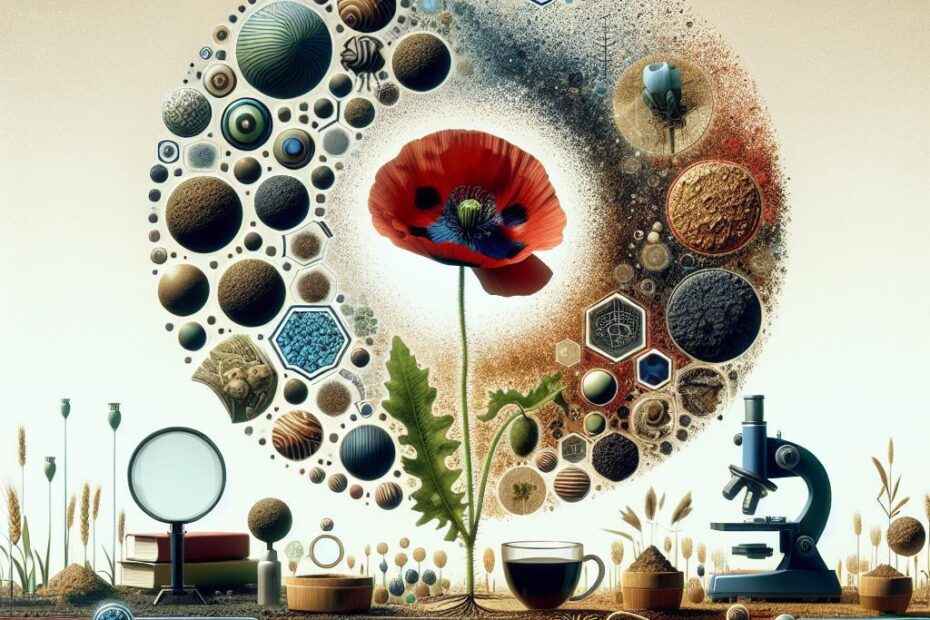Title: The Ultimate Guide to Soil for Poppies: Tips, Tricks, and Best Practices
Introduction:
Poppies are vibrant and beautiful flowers that can add a touch of elegance to any garden or landscape. However, to ensure they thrive and bloom to their full potential, it’s crucial to provide them with the right type of soil. In this comprehensive guide, we will delve into the importance of soil for poppies, the best soil types, as well as provide practical tips and tricks to help you grow healthy and stunning poppies in your garden.
The Importance of Soil for Poppies:
The soil is the foundation of any plant’s growth, and poppies are no exception. The right soil composition can provide essential nutrients, promote healthy root development, and ensure proper drainage for the poppies to thrive. Here are some key factors to consider when selecting soil for poppies:
-
Nutrient Content: Poppies require nutrient-rich soil to support healthy growth. Look for soil that is rich in organic matter, such as compost or well-rotted manure, to provide essential nutrients like nitrogen, phosphorus, and potassium.
-
pH Levels: Poppies prefer slightly acidic to neutral soil with a pH level between 6.0-7.0. Test your soil pH levels and amend it accordingly using products like lime or sulfur to ensure it falls within the ideal range for poppies.
-
Drainage: Poppies are susceptible to root rot if grown in waterlogged soil. Ensure the soil has good drainage to prevent waterlogging and promote healthy root development. Adding perlite or sand to the soil can improve drainage.
Best Soil Types for Poppies:
When it comes to growing poppies, certain soil types are more conducive to their growth and development. Here are the best soil types for poppies:
-
Loamy Soil: Loamy soil is a well-balanced combination of sand, silt, and clay, making it ideal for poppies. It offers good drainage, retains moisture, and provides essential nutrients for healthy plant growth.
-
Sandy Soil: Sandy soil is light and well-draining, perfect for poppies that prefer drier conditions. However, sandy soil may lack nutrients, so amending it with organic matter can improve its fertility.
-
Well-Drained Soil: Poppies thrive in well-drained soil that allows excess water to flow away from the roots. Avoid heavy clay soil that retains water, as it can lead to root rot in poppies.
Practical Tips for Growing Poppies in the Right Soil:
To ensure your poppies thrive in the right soil conditions, follow these practical tips:
- Test your soil pH levels before planting poppies and amend it if necessary.
- Add organic matter like compost or aged manure to improve soil fertility.
- Avoid overwatering poppies, as they prefer slightly dry conditions.
- Mulch around poppies to retain moisture and suppress weeds.
- Fertilize poppies during the growing season with a balanced fertilizer to promote healthy growth and vibrant blooms.
Benefits of Growing Poppies in the Right Soil:
Growing poppies in the right soil can offer numerous benefits, including:
- Healthy root development and plant growth.
- Vibrant blooms and prolonged flowering period.
- Increased resistance to pests and diseases.
- Improved overall garden aesthetics.
Conclusion:
In conclusion, providing the right soil for poppies is essential for their growth and blooming success. By selecting nutrient-rich, well-draining soil with the ideal pH levels, you can ensure your poppies thrive and produce stunning blooms. Follow the practical tips and best practices outlined in this guide to grow healthy and beautiful poppies in your garden. With the right soil and care, your poppies are sure to become a show-stopping addition to your landscape.
